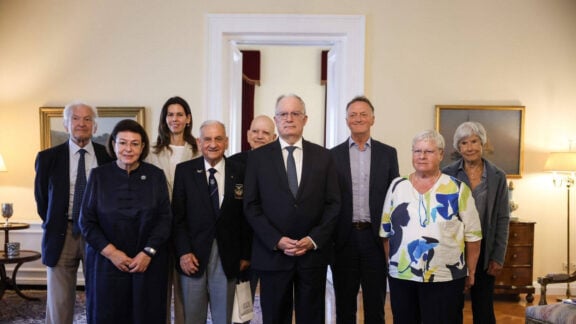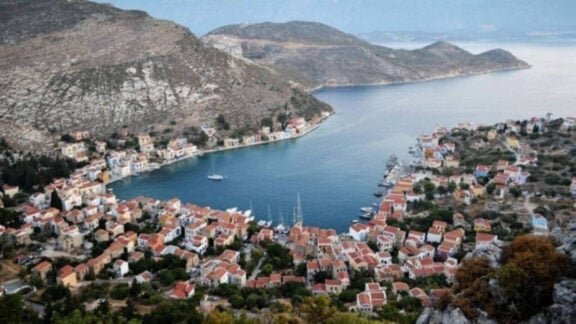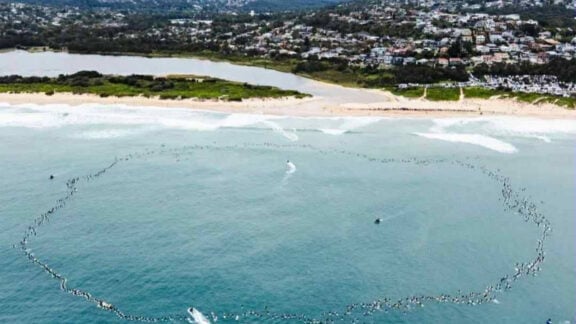It’s been a long, tough time for anyone living in Greece. That is pretty much well established at this point. Wave upon wave of soul-crushing austerity, businesses closing down so often and so quickly that it’s not even worth reporting on anymore and a new breed of Greeks living on the streets, with no eyes left to look at the future. All that can be seen on a clear day, from the top of the European unemployment mountain that Greece has firmly stuck its flag on.
I thought we did this already
And yet, listening to current prime minister Alexis Tsipras and his ministerial brigade talk about how they’ve just saved Greece, you’d be forgiven for thinking you may have missed a beat somewhere. Because surely, most definitely, hasn’t that been done already? Didn’t Tsipras save Greece not too long ago, during that historic battle with the country’s EU lenders, which lasted a whopping and sleep-deprivating 17 hours straight? In fact, didn’t previous prime minister Antonis Samaras do that as well? Hadn’t he also rescued Greece when agreeing his version of the bailout, a bailout which was going to put an end to the memorandum era? Wasn’t the then prime minister ripping up the memorandum page by page, as he so famously said?
The answer to all of the above is a hearty and quite heavy-set yes. Apparently Greece, pretty much the pariah of the European Union at this point, has been rescued, saved and dragged back from the brink a number of times, only for the citizens of the country to realise that in effect, that doesn’t really change much. The distance between the political rescue announcements and the reality on the street is still separated by a chasm wide enough to fit the Aegean sea.
“I personally don’t see a way out. But I’m old enough not to care anymore. I’ll be 79 in September. Whatever comes next will matter very little to me. It’s a terrible thing to say, but what can you do?”
Manolis is a small business owner, running a convenience store, a short drive from the centre of Athens. Mainly dealing with neighbourhood customers, the 78-year-old has finally decided to lock up his shop for good this coming June, unable to deal with the coming tax onslaught that SYRIZA has cooked up, in order to finally agree a deal with the troika (or whatever the current government would like them to be referred to these days), a deal that would finally allow Greece to access the first slice of the much-maligned bailout deal that seems to constantly be on its way, but never quite gets here.
According to the minister for labour and social security, Giorgos Katrougkalos, the new tax and social security structure that SYRIZA is attempting to build is fair on everyone, especially for the lower and middle financial classes, who are of course both struggling for air within a political system that only has one answer to everything that the EU lenders throw on the table: we will see your new demands and raise taxes. And raise taxes. And raise taxes. And frankly, raise some more taxes.
It is, of course, a knee-jerk reaction from a government with precious few answers, in a time that desperately needs them. Rising to power on the wave of a campaign that was designed to distance SYRIZA from PASOK and New Democracy, the two major established political parties that had effectively shared the running of Greece since the fall of the military junta in 1974, the party led by Alexis Tsipras promised an end to everything that had brought Greece to its knees: old school political thinking, corruption, unemployment and of course, austerity. It hasn’t worked out that way. Greeks saw their hopes of a better day crushed when SYRIZA started backpedalling almost immediately upon taking power, stammering and dodging as the EU muscle that they thought they could out-manoeuvre hammered them into a corner.
SYRIZA’s current play for gold sees it accept that a new wave of taxes will be hitting Greeks where it hurts, but that this will be the final crack of the whip on its already heavily-bleeding back. Just around the corner, it promises, are talks over the Greek debt and a way to finally slice the staggering €350 billion monster – that the ECB and the countries of Europe have handed over – down to size.
The sounds and mumbles around the EU are certainly pointing in that general direction. The president of the Eurogroup and Dutch Finance Minister Jeroen Dijsselbloem admitted while speaking at Oxford University earlier this week that a solution concerning the Greek debt had to be found, as it could not be denied that it was destabilising the economy and causing major issues. He did, however, rule out the possibility of that much needed debt ‘haircut’. So essentially Greece, the EU hears what you’re saying, just don’t expect much just yet.
It all leaves the average Greek in no-man’s land. Ruled by yet another government that has gone back on every single thing it promised to do, hit by tax hikes on all sides and with a news feed that is seemingly stuck on a loop since the crisis began: Greece is on the brink of exiting the EU; Greece agrees deal with EU lenders; Greece is saved and on its way back to the luscious lands of financial growth; talks between Greece and its EU lenders have stalled; Greece is on the brink of exiting the EU. And so on and so forth until all blends into a blur, morphing into Groundhog Day: the Aegean edition.
“I mean, I’m not saying that we shouldn’t have seen it coming,” Manolis huffs with a slight shrug of his ageing shoulders, “but I think most of us just wanted to believe that it would be easy to turn a corner, just by voting ‘the right way’, do you know what I mean?”
He takes a small sip of his coffee and crosses his legs as he sits on a plastic chair, right outside his rather barren convenience store, whose empty shelves clearly can’t wait for June.
I briefly mention the talks of the debt ‘haircut’ and how that could switch Greece’s ailing fortunes. He chuckles with a slight cough.
“How many times have we heard that already? And how many times are we going to hear it again? It all sounds the same and frankly, it all sounds of nothing. Life is getting harder, taxes keep coming, how does that help us?”
He turns to his side, switches on his radio just as a news report starts. Top story: Greece edging closer to a deal with EU lenders. He smiles at me and nods his head towards the speaker.
Another day, another sense of déjà vu.
* Gerard Papasimakopoulos is a radio show host and translator.









